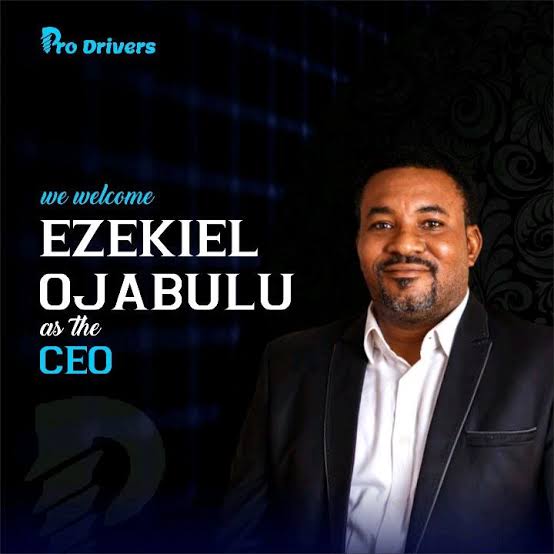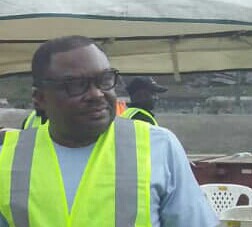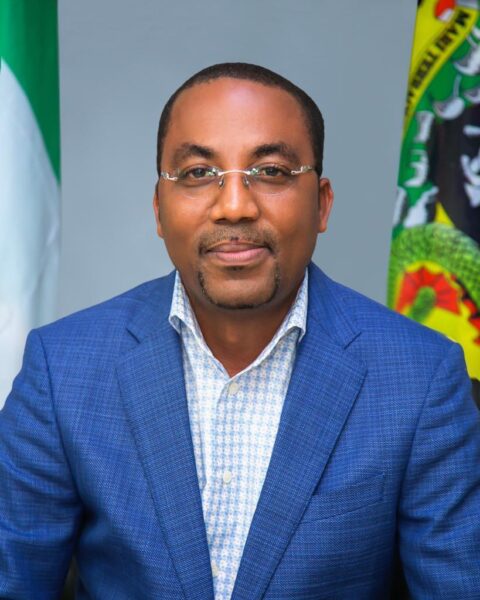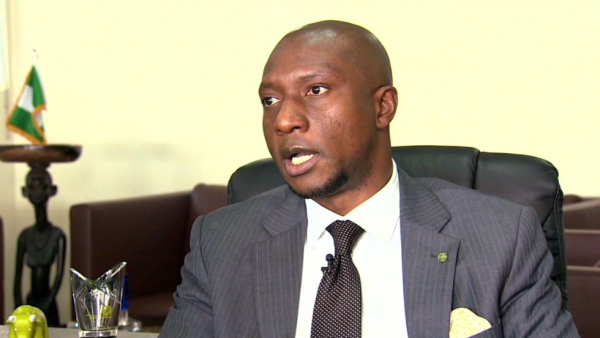How Maritime Industry Deficiencies Affect Power, Agric Sectors – Usoro
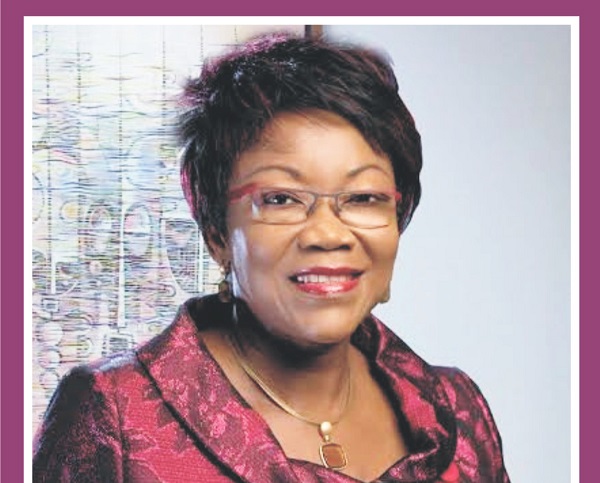
By Kenneth Jukpor
Barr. (Mrs.) Mfon Usoro is the chairperson of the Governing Board of Nigerian International Maritime Summit (NIMS). She is the immediate-past Secretary General of the Abuja Memorandum of Understanding (MoU) on Port State Control for West and Central African Region. Usoro is also a former Director General of the Nigerian Maritime Administration and Safety Agency (NIMASA).
Last week, during a media parley ahead of the maiden NIMS event, Usoro spoke on a wide range of maritime sector issues even as she narrated how the lapses in the sector affects the nation’s economy and the standard of living of its citizens. Enjoy it:
What does NIMS plan to do differently and would the conferences be annually or biennially?
At the moment we are looking at having the programme once in two years. Following the pandemic, we know that the season we are in at the moment is such that we can’t predict the future or know what will be the norm by next year. We are business people and have a business background of minimizing risks and adjusting to ensure that we reach our goals.
The ideal goal will be to make the programme an annual one and we would work towards achieving this. However, this means that we don’t have to bite more than we can chew. We have to plan according to the resources available and elaborately discuss specific issues at each summit. This idea will not die because we are flexible to accommodate all the shots.
The maritime sector is awash with numerous conferences that lead to loads of recommendations but they are hardly ever implemented. For ship ownership, some of the issues bother on fiscal policies under the Finance Ministry; how do you intend to get relevant ministries onboard?
Incidentally, both Engr. Greg Ogbeifun and I am a member of the Nigerian Fleet Implementation Committee which is headed by Mr. Hassan Bello.
There are several factors which include the fiscal policies. The impact of the policies developed by the Ministry of Finance on Customs duties on vessels is one of them, but it’s not just the Finance Ministry because some other issues are inter-Ministerial. We highlighted some of these issues in our reports and the government took it seriously. At a level we had a session with the Vice President, Prof Yemi Osibanjo at the Aso Rock. We spoke extensively on this matter and the next stage was for us to meet with the Nigerian Investment Promotion Commission (NIPC). Another committee was set-up to achieve this and that committee included the Ministry of Finance.
We also had meetings with the Central Bank of Nigeria (CBN), the Ministry of Budget and National Planning. That’s the Ministry that discusses the Visions for the nation and we discussed these issues with them.
We have held several meetings but we have to continue pushing. The essence of having a summit like the NIMS is to keep such topical issues burning. Most of these meetings I have just highlighted were not public meetings. However, in a public forum we can let the industry know that we have pushed these issues to a certain level but everyone must come together to lend our voices in the bid to ensure the issues move from the current stage to the next phase of implementation.
NIMS is another opportunity to remind the policy makers and key Ministries that it is time to take actions on the numerous recommendations from several conferences. Sometimes, it has a better effect when the group of stakeholders or professionals join in making a statement than the position of just a committee.
The government and other necessary authorities would realize that they are limiting trade and shortchanging the nation by not implementing the recommendations that were brought to them. So, the point is that NIMS is an opportunity to achieve these goals.
In the upcoming summit, there is also a topic on Ship Financing and we are going to bring back the issues because the government had promised to implement these recommendations. We need to continue to interface and not give up. We have to keep using new strategies and exploring innovative approaches to get the desired goals in the nation’s maritime sector. Part of the innovative strategy is to gather industry-wide position on the crucial issues so it isn’t just a recommendation by a committee.
How would you relate the consequences of these maritime sector challenges on the nation’s economy for the average Nigerian to understand it?
Nigeria’s maritime potential is huge. If we are able to harness it, we would attain massive job creation, economic buoyancy and much more. Looking at the sector’s potentials and relevance in a simple way; power sector and agriculture are core sectors that affect everybody.
Everyone needs electricity and some people have to pay so much at a premium for it. Those who don’t pay that premium would hardly have power supply. For agriculture, a lot of people are farmers. Every farmer wants to grow his or her farm business to produce more at a minimal cost and in an efficient manner. To achieve this, they would need the appropriate equipment and they depend on the maritime sector for the import of several farm equipment.
Industrialized agriculture relies on heavy farm machinery and equipment that are usually imported. Using the examples of these two sectors which affect everybody, they both rest on maritime transportation because the equipment for power generating and distribution companies are imported via ships. If Nigeria could coordinate its maritime sector properly, those imported equipment such as turbines will be at a reduced cost. Consequently, the price of the service which is power would also be at a much lower cost.
If there are more Nigerian-owned ships and ship repair-yards, the cost of shipping these items would be cheaper. If foreigners know that there are quality ship repair-yards in Nigeria, they would be more willing to come here while indigenous operators also don’t need to travel abroad and spend forex on ship repair activities.
As more tractors and other farm equipment arrive the country at cheaper cost, the effect would be seen on the prices of agricultural products.
Availability of ship repair-yards will also make those ships coming to Nigeria have confidence that if their ships have a problem around the nation there will be yards to fix them. It also goes further to the logistics because when the tractors and turbines arrive, what is the dwell-time of the cargoes at the ports? What is the time-lag for clearing the cargoes? What is the cost of clearing cargoes? Sometimes, the delay isn’t one month or two months; these items could stay for over a year. You can imagine the cost implications of these hitches on the power generating companies. These challenges in the maritime sector pushes up the cost of power supply and every Nigerian will suffer for it.
We need to drive efficiency in the maritime sector because the impact will be very effective across many sectors. When farmers can’t access machinery for mechanized farming or they have to pay higher, the cost burden will be reflected in the prices of the food products. We import a lot of food items when we can produce in-country but to achieve that we need several equipment that will be imported.
If the nation’s maritime sector continues to be in disarray it would have an impact on all citizens.
When we talk about opportunities in the maritime sector, some of us are from coastal areas where people know how to swim right from their youth. In a maritime economy that harnesses its potentials, these should be the first people to become seafarers. There should be opportunities for them to become seafarers not just in Nigeria but to be exported to other parts of the world like the Philippines are doing.
Nigeria has a teeming youth population and we can start from those who aren’t afraid of water because they were born and raised in coastal areas. We should be able to train them and export them so they could earn foreign exchange.
There is really no aspect of the economy that doesn’t have a reliance on the maritime sector. When we do the talk-shops at the higher level it doesn’t mean that the impact of these issues are beyond the average Nigerian.




